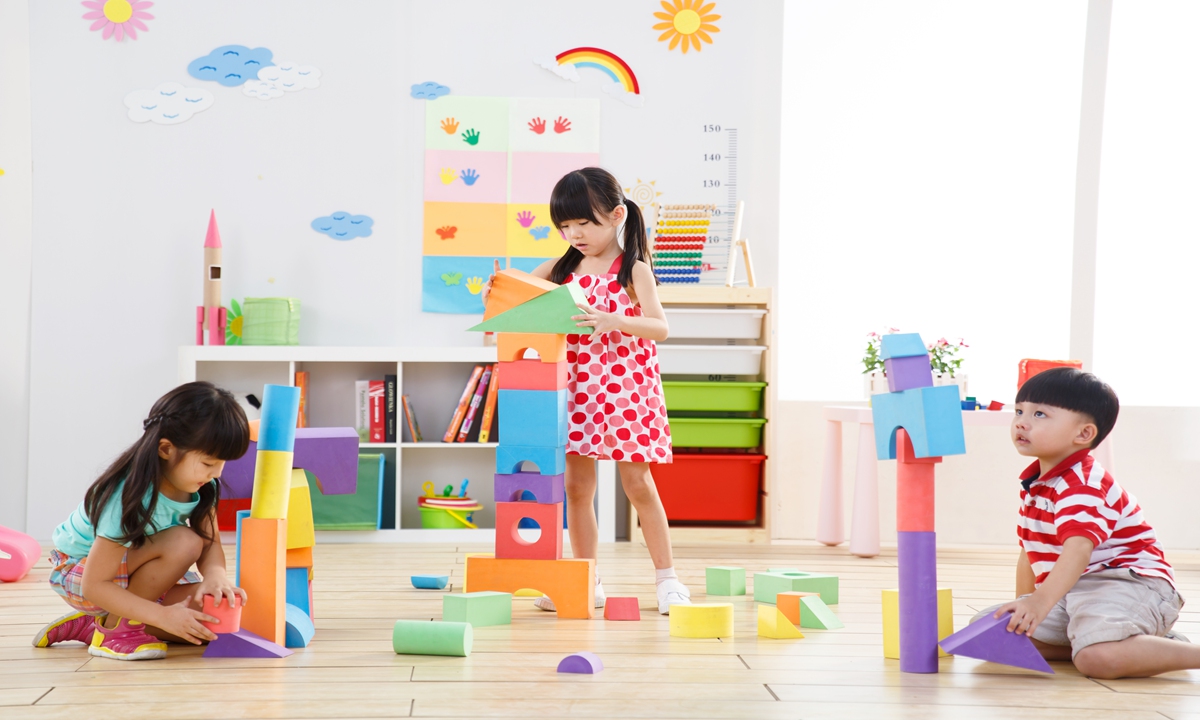Chinese cities offer longer parental leave, cash, housing subsidies to encourage childbirth

Photo: VCG
Couples in East China's Jiangxi Province and Southwest China's Sichuan Province who have children aged below 3 years old will be entitled to parental leave for up to 10 days each year, according to revised local family planning regulations. The move comes amid the country's efforts to create a better environment for families to have children.
The penalty clause has been abolished in the revised regulations in Jiangxi, and the social maintenance fee will be abolished for those who have given birth to more than three children. Also, couples will be entitled to marital leave for 15 days in addition to the national holidays and mothers will get more than 90 days of maternity leave, while fathers will have 30 days of nursing leave.
Along with parental leave, the revised regulation in Sichuan also included measures to reduce the burden of family birth, upbringing and education as well as strengthen maternal health services and supportive guidance for infant care. It especially emphasized that employers should ensure that maternity leave and nursing leave are granted.
Sichuan's move is one of many new policies issued by Chinese provinces and regions. For example, in East China's Anhui Province, local authorities on Monday released a draft revision on the local family planning regulation to solicit public opinion and declared, in a rare move, that the province's population has been sharply decreasing for four consecutive years.
According to the new regulation, Anhui is planning to extend marital leave from three days by 13 days. Mother will be entitled to more than 90 days of maternity leave, and father will have 30 days of nursing leave. Couples will have 10 days of parental leave each year before their child is under six years old.
From 2017 to 2021, the birth population in Anhui was 984,000, 865,000, 766,000, 645,000 and 530,000 (predicted), respectively, with the growth rate reaching -12.1 percent, -11.4 percent, -15.8 percent and -17.8 percent, respectively, indicating a dramatic decrease, according to the draft.
In Central China's Henan Province, Changyuan is planning to let couples who have children under 3 years ago have 30 days of parental leave each year. In Wuhan, Central China's Hubei Province, the related hospitalization costs for having a birth for a third child was included into the city's maternity insurance since May 31, 2021. Meanwhile, fathers are entitled to 15 days worth of pay in subsidies.
Along with the parental leave and nursing leave, many cities across the country also launched subsidy policies to encourage childbirth.
Couples from a village in South China's Guangdong Province will get up to 3,300 yuan ($510) each month for having newborn babies born after September 1, a new policy that offers cash to increase the village's birth rate.
Chinese cities have delivered various ways to attract residents' attention, including providing subsidies for buying a house. A county in Northwest China's Gansu Province announced in September it would provide subsidies of up to 40,000 yuan, which could be used when buying a house, for couples who give birth to two or three children.
Facing a situation where the country's newborn rate has declined for several years, China announced in May it would further ease its family planning policy to allow each couple to have up to three children.
